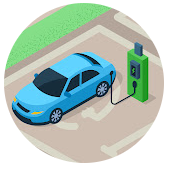
Understanding the Shift: Why Car Dealerships Are Closing
The automotive landscape is undergoing a massive transformation, leading to increased car dealership closures. Factors such as online shopping trends, supply chain issues, and evolving consumer preferences are reshaping how vehicles are sold and serviced. With many customers now opting to purchase cars online or directly from manufacturers, traditional dealerships face significant challenges in remaining relevant.
In the video 'Car Dealership Closures: Massive Shifts in the Automotive Industry,' key insights about the changing landscape have sparked a deeper analysis on adapting strategies for car dealerships.
The Impact of Online Sales and AI on Car Dealerships
As consumer behavior shifts toward convenience, online platforms for buying and selling cars are becoming increasingly popular. The rise of automated online courses also means that more potential car buyers are informed and educated about their choices. This trend is forcing dealerships to adapt their sales strategies, including exploring AI tools for marketing and sales to keep up with digital competition. Those who utilize technology effectively are finding ways to thrive in this challenging environment.
Embracing Change: What Dealerships Can Do
Car dealers need to innovate to survive. Offering services that cater to modern consumer needs, such as affordable auto repair options and comprehensive vehicle service centers, can drive customer loyalty. Providing clear, accessible information about the best used cars for sale and adding online training resources for staff can help dealerships transition to new selling environments.
Local versus Global Trends: The Future of Car Sales
While the closures of local dealerships may be alarming, it is essential to consider the broader, global trend of automotive purchasing. The shift towards online sales isn’t limited to one region; it's happening worldwide, reshaping how consumers think about vehicle ownership and maintenance. By understanding these trends, dealerships can adapt and find new opportunities.
Taking Action: Strategies for Success
To mitigate the impacts of dealership closures and stay competitive, car dealers should focus on efficient operations and customer service excellence. They can leverage modern tools such as AI for business development, enhancing customer engagement and retention. Additionally, participating in automotive training online can empower staff to better understand and meet customer needs, making the dealership more resilient to changes.
Conclusion: A Call to Action for Dealership Leaders
In light of these changes, car dealership principals, owners, operators, and general managers must be proactive. Understanding the implications of dealership closures and the evolving market landscape is crucial. By embracing technology, enhancing service offerings, and committing to continuous learning, dealerships can navigate these turbulent times effectively.
 Add Row
Add Row  Add
Add 




Write A Comment